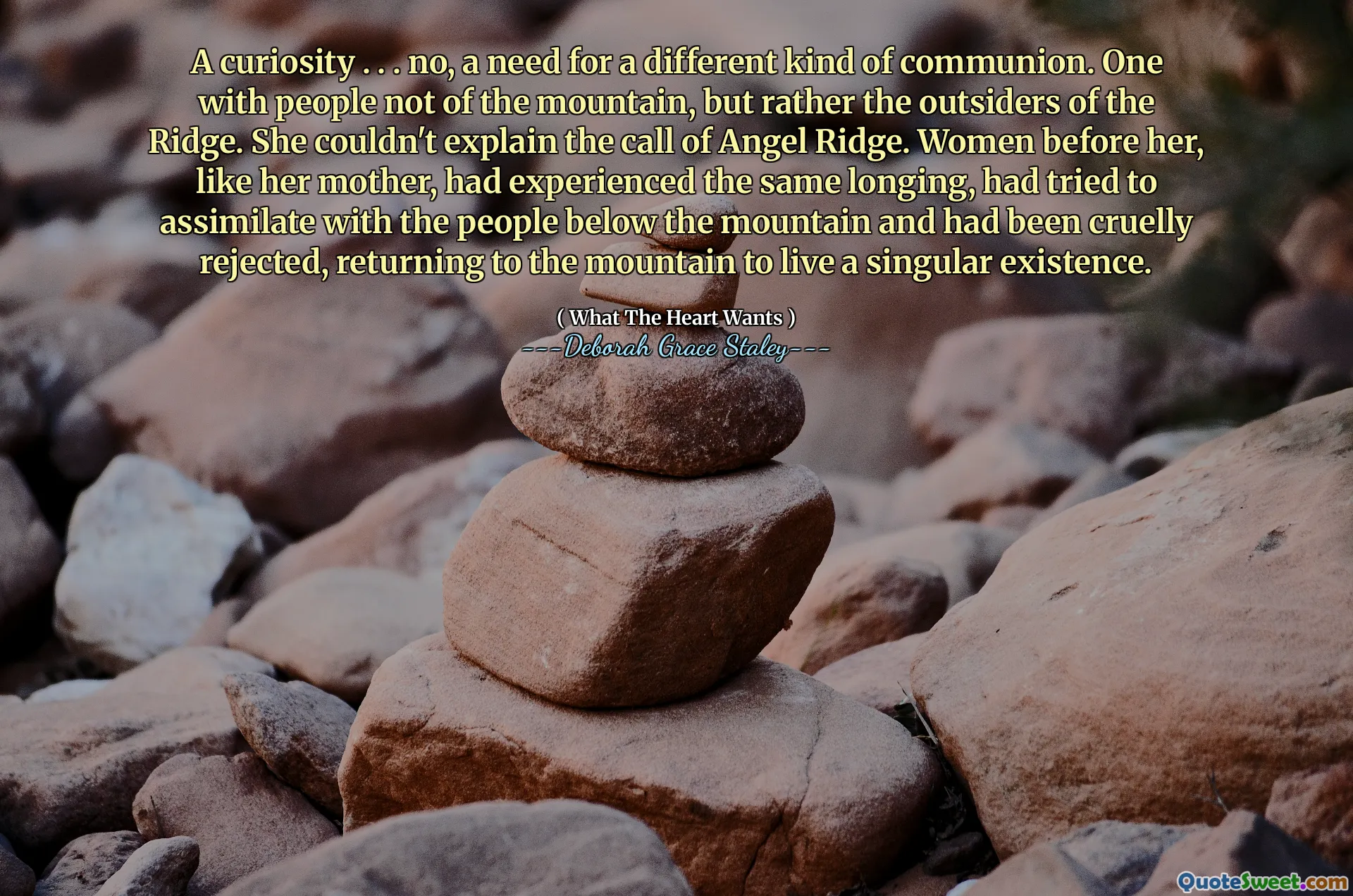
A curiosity . . . no, a need for a different kind of communion. One with people not of the mountain, but rather the outsiders of the Ridge. She couldn't explain the call of Angel Ridge. Women before her, like her mother, had experienced the same longing, had tried to assimilate with the people below the mountain and had been cruelly rejected, returning to the mountain to live a singular existence.
This quote delves into the profound sense of yearning for connection beyond familiar boundaries, highlighting a desire to forge meaningful relationships with those considered outsiders. The narrator's recognition of this need as more than mere curiosity underscores a deep emotional drive, one rooted in the human longing for understanding and acceptance. The mention of Angel Ridge symbolizes a liminal space or threshold—somewhere on the cusp of familiarity and the unknown—embodying the tension between the desire to integrate with the broader community and the fear of rejection that often accompanies such attempts. Historically, women like her mother have faced the painful rejection after trying to bridge the divide, only to return to an isolated, sometimes perilous existence on the mountain. This cyclical pattern emphasizes themes of vulnerability, longing, and resilience. It evokes a universal truth: that the pursuit of connection often involves risking pain, yet it remains a vital pursuit for authentic human experience. The imagery of the mountain and the Ridge encapsulates barriers—both physical and emotional—that individuals grapple with when seeking belonging. In a broader context, this quote speaks to the universal human experience of longing for community and acceptance, especially when societal or familial rejection has historically dictated a life of solitude or exile. It invites reflection on the courage required to seek new forms of communion, despite the potential for rejection, and highlights the enduring human spirit that strives toward intimacy and understanding even in the face of adversity.






